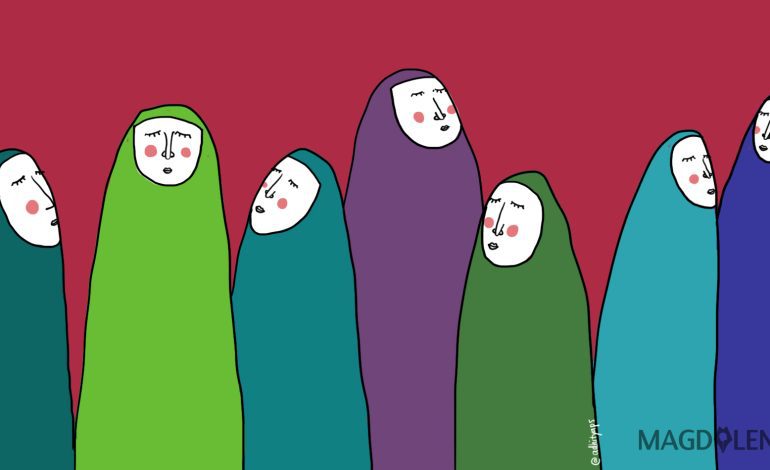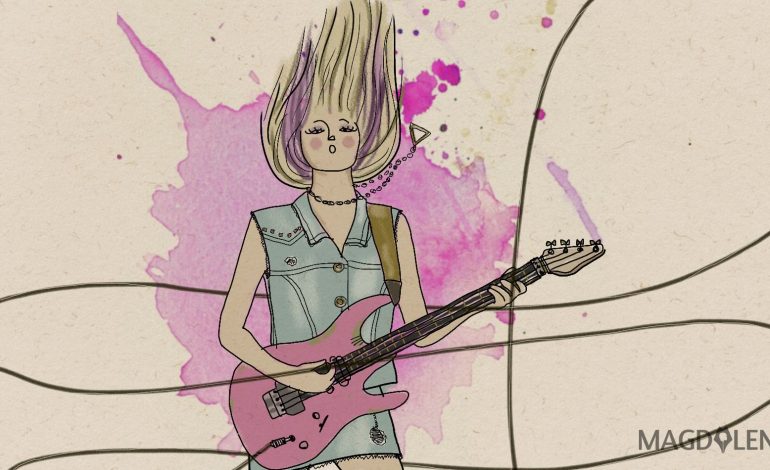Inaugural Indonesian Women Ulema Congress Targets Gender Injustice

 Malaysian Zainah Anwar could not contain her amazement when she spoke at the Indonesian Women Ulema Congress (KUPI) held in Cirebon, West Java, last week.
Malaysian Zainah Anwar could not contain her amazement when she spoke at the Indonesian Women Ulema Congress (KUPI) held in Cirebon, West Java, last week.
The director for Musawah, a global movement for equality and justice in the Muslim family, said it was so progressive of Indonesian women to hold such event on a grand scale, where hundreds of women and men talked about the challenges faced by Muslim women and society.
“It will never happen in Malaysia, the government would not allow it. People would be ‘Oh, women’s right is not Islamic, it’s kafir (infidel),” said Zainah, who is also a founding member and former executive director of Sisters in Islam, a Malaysian non-governmental organization working on women’s rights within the Islamic framework.
The inaugural three-day congress held at Kebon Jambu Islamic Boarding School (Pesantren) on April 25-27 was indeed nothing short of amazing. Number-wise, 575 people (selected from 1,270 people who registered) from 25 provinces in the country participated, with an addition of 185 observers including those from 15 countries. Countries represented included Afghanistan, Pakistan and Saudi Arabia, to Thailand, Singapore, the Netherlands and Canada.
The participants came from various organizations – from the largest Muslim organization Nahdlatul Ulama (NU), to Muhammadiyah, Muslimat al-Washliyah and Indonesian Women Islamic Organization Assembly (BMOIWI) – as well as different Islamic sects, such as Sunni, Shia and Ahmadiyya. The latter are organizations deemed heretic by hardline and fundamentalist groups in Indonesia.
Most of the participants were women, and to say they were passionate is an understatement. Multiple hands were quickly raised during Q&A sessions, and people even formed a long queue, patiently waiting for their turns to ask questions or share their experience. The queries were solid and critical, the experiences shared were insightful and reflective of the rich layers of challenges faced by women.
Polygamy, violence against women and rising conservatism and fundamentalism were the repeated issues raised by participants. They roared in thundering applause when scholar Siti Ruhaini Dzuyatin told (or rather shouted at) an international seminar: “Polygamy is not the teaching of Islam. It had existed long before Quran came!”
The applause continued as the former Chair of the Organization of Islamic Cooperation’s (OIC) Independent Human Rights Commission pointed out how gender-friendly perspectives in Fiqh (Islamic jurisprudence) text are often omitted or not promoted by men, who prefer the patriarchal point of view that benefit them.
In fact, one of the purposes of this Congress is seeking women-friendly interpretation of the sacred texts. There were several issues discussed in the parallel discussions and assembly meetings, but the large themes were sexual violence, child marriage and environment.
“There are so many complicated issues that we’d like to discuss,” said Husein Muhammad, the famous feminist ulema who actively advocate for gender and reproductive rights. “But based on a series of halaqah (study circle), the three issues were picked, although other related topics were also discussed. These three issues are actual ones and are currently pushed to be formalized into law by the House of Representatives,”
Women Ulemas and the Challenges of Proselytizing
Women ulema is not a new tradition in Islam as they had existed since the period of Prophet Muhammad. One of the earliest women ulemas was one of his wives, Siti Aisha. The capacity of women ulemas has been recognized in spreading the teaching of Islam and in critiquing the tradition, phenomena, views or policies seen as violating women’s rights. Since then, however, the number of women ulemas and their roles have experienced ups and down because of patriarchal traditions.
“Women ulemas have been sidelined because of male-dominated social and political construction. It is unfortunate because the intelligent and integrity of women ulemas have been recognized in the historical texts,” said Badriyah Fayyumi, the Head of the Congress’ Steering Committee.
She pointed to the book Mizan al-I’tidal by Adz-Dzahabi that analyzes the hadiths (collection of traditions containing the sayings of the Prophet Muhammad), including those deemed inaccurate and containing lies. The book confirms the capability and credibility of women in recording the hadiths or perawi, saying that none of the women perawi recorded false hadiths.
It is because women have borne the brunt of suffering in the name of religion that in many parts of Muslim world today, women are at the forefront of our societies in pushing for change in the understanding and practice of our religion – to recognize equality and justice and push for law reform to uphold these principles.
In Indonesia, women ulemas have been sidelined for much of the history. Nevertheless, there were prominent names across the country, from Sultanah Tajul Alam Safiatuddin Johan Berdaulat in the 17th Century Aceh, to Queen Aisyah We Tenri Olle in South Sulawesi and Queen Zaleha in Kalimantan by the end of the 19th Century.
During the country’s independence movement, there were figures like Siti Walidah or Nyai Ahmad Dahlan, Rohana Koedoes, HR Rasuna Said and Nyai Khoiriyah Hasyim.
“It can be said that the historical trace of women ulema since the 17th Century continued to exist and at the moment, women ulemas are increasing in numbers and play roles in various life aspects,” said Badriyah.
In this period where religious conservatism and radicalism are growing, the role of women ulemas is considered more critical to push for changes toward equality and justice.
“It is because women have borne the brunt of suffering in the name of religion that in many parts of Muslim world today, women are at the forefront of our societies in pushing for change in the understanding and practice of our religion – to recognize equality and justice and push for law reform to uphold these principles,” said Malaysia’s Zainah Anwar.
Rampant literal and misogynistic interpretations of religious texts have resulted in ruthless practices where raped women are the ones who are punished, for example.
“Verses that blamed women have been prioritized. It is important for women ulemas to convey verses and interpretations that are women-friendly, because the intrinsic justice exists in Islam, the sources and verses about it are abundant. What we need are women-friendly perspective, and the laws that guarantee the intrinsic justice for women,” said scholar Nur Rofiah from Rahima, Jakarta-based Center for Education and Information on Islam and Women’s Right Issues.
Roya Rahmani, the Ambassador of Afghanistan for Indonesia, succinctly summed up the stance that women ulemas should take: “It’s time to get angry about violence committed in the name of our religion that we practice every day to seek refuge and peace.”
Self-Doubt and Inward-Looking
Women often grapple with acute lack of self-confidence and this characteristic emerged during the Congress, where, despite their capacity and experience, some participants refused to be called ulema. In contrast, male ulemas have no hesitation to call themselves one despite the apparent lack of insight and experience about religious and community issues. The women participants also voiced their anxiety on the stigma of women ulemas who would lead women to a “wrong direction” and abandon their domestic duties.
Muslim scholar and gender rights activist Neng Dara Affiah said that being an ulema is a matter of claiming the leadership role and responsibility in society.
“It is a noble thing to do, but there seems to be either humbleness or a lack of self-confidence among participants here to call themselves ulema. The clergy is highly possible for women. We have to be confident that we own the capacity as ulema,” Neng said when moderating one of the seminars.

“There are amazing, progressive thoughts produced by Indonesian scholars, from Nurcholis Madjid to (late President) Abdurrahman Wahid and Fahmina Institute. Of course, Indonesia faces the challenges of rising conservatism, but the core of the progressive thinking in Indonesia comes from tradition, not external but from within. It’s so precious that Indonesia needs to promote,” Zainah said in an interview on the sidelines of the Congress.
In Malaysia, she said, religious thinking is developed in the service of the state, but it is not so in Indonesia, where Islam is developed among scholars, making religious scholarly exercises more independent. Islamic universities in Indonesia has also reformed the curriculum and integrate gender, she said.
As for the Women Ulema Congress, Zainah said: “KUPI is amazing, it doesn’t happen in a global scale. It’s so feminist, so progressive, Indonesia has to share it with the world.”
Religious Fatwa
At the end of the event, the Congress issued recommendations on sexual violence in all its form, calling it haram (forbidden) because they violate human rights that are guaranteed by Islam.
“We side with the victims by not allowing criminalization, stigmatization, isolation, expulsion of victims. And we especially would not let victims be forced to marry the perpetrators of sexual violence,” said the statement from the women ulemas.
It’s time to get angry about violence committed in the name of our religion that we practice every day to seek refuge and peace.
The ulemas also issued fatwa obliging Muslims to prevent early marriage as the practice would do more harm than good. Therefore, preventing early marriage is an obligation, according to the fatwa. They also said that child marriage survivors should be able to get education and protection from any kind of violence and discrimination. The ulemas urged the government to set the minimum age of marriage to 18 for both women and men, instead of 16 for women and 18 for men at the moment.
On the issue of environment, the women ulema agreed that man-made destruction in the name of development that caused socio-economic inequality, such as the one currently occurred in Kendeng, Central Java, is absolutely haram.
These religious edicts, though non-binding, would be “disseminated in religious studies forums” and the ulemas would spread religious interpretations and texts/literatures that have gender justice perspective.
Minister of Religious Affairs Lukman Hakim Saifuddin praised the Congress for fighting for gender justice against the limited understanding of sacred verses. He promised to discuss with the government on the call to increase the minimum age of marrying. Previous effort has rejected by the Constitutional Court, which said it was the authority of the legislature to change the law.
“I will bring the recommendations of the Congress to the government. I hope this Congress can formulate more technical recommendations,” he said during the closing ceremony.
Read Hera’s other report from the Women Ulema Congress on women’s role in religious radicalism and follow @heradiani on Twitter.






















